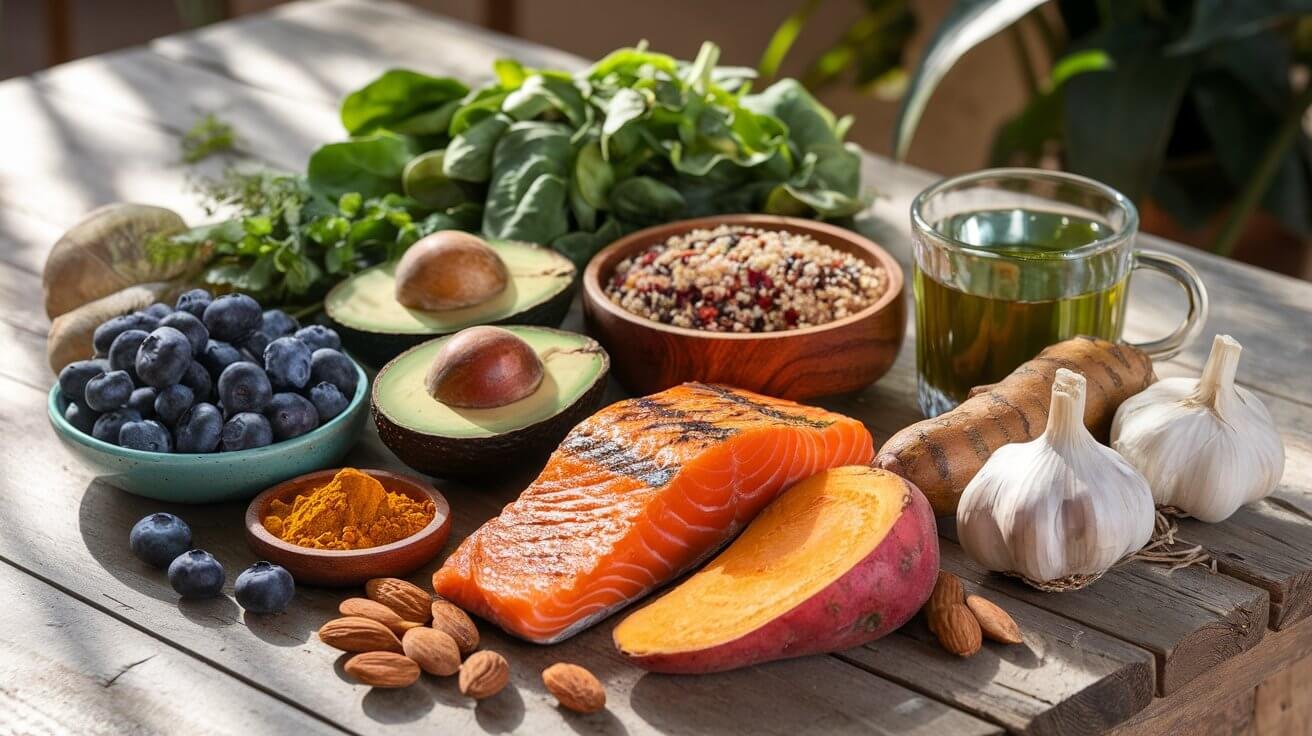Explore Healthy Living
In a time when chronic diseases, lifestyle disorders and vitamin deficiencies are only getting worse; eating adequate nutrition is extremely crucial. The term superfoods has been a real buzzword in the health and wellness world for some time, these mean foods that are very rich in different vitamins, then minerals or antioxidants. These superfoods pack a seriously strong nutritional punch, enabling your body to combat diseases, enhance cognitive function and improve general wellness.
In this superfood breakdown, we’re going to take a more in-depth plunge into each of these foods and get a little bit nerdy about their health benefits, how it works within the body and some ways you can incorporate them seamlessly into your diets.
Blueberries (The Antioxidant King)
Berries, known as one of the quintessential superfoods are also excellent sources of antioxidants such as anthocyanins which gives them their natural blue-purple dye. As they serve a rich source of antioxidants and may decrease oxidative stress, the underlying process in aging through cancer to cardiovascular diseases.
Aside from antioxidants, blueberries are rich in vitamin C for immune function, and vitamin K needed for blood clotting as well as bone health. They also give a decent quantity in dietary fiber, which assists with the unhealthy digestive system and weight regulation.
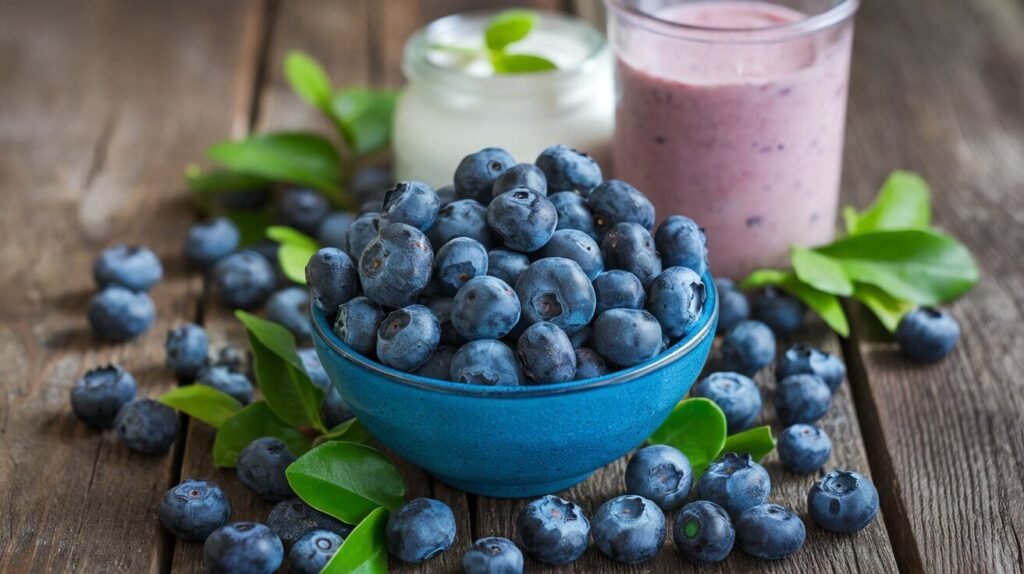
Key Nutrients:
Antioxidants: These have a strong antioxidant and anti-inflammatory.
Vitamin C: as we know Vitamin C is known to boost immune defense and skin health.
Blueberries also contain fiber.
Health Benefits:
Brain Health: Blueberries have been shown to delay brain aging by 2.5 years in elderly populations. Research shows they may even help improve memory and brain function!
Cardiovascular Health: Blueberries support healthy heart function, this is through lower blood pressure and LDL cholesterol levels, two key factors in preventing heart disease.
Helps in Diabetes Management: With its high fiber content and low glycemic index, blueberries can help regulate blood sugar levels.
How to add it: Incorporate blueberries into your morning smoothie, top off a yogurt parfait with them or eat fresh as a snack.
Kale: The Super Green
Kale has long been regarded as one of the healthiest veggies on account that it is low in energy, high in vitamins and minerals. Kale: Known to be one of the most nutritionally biologically significant foods on our planet, gives more than a day’s worth of vitamin A as beta-carotene, vitamin C and K in just 1 cup.
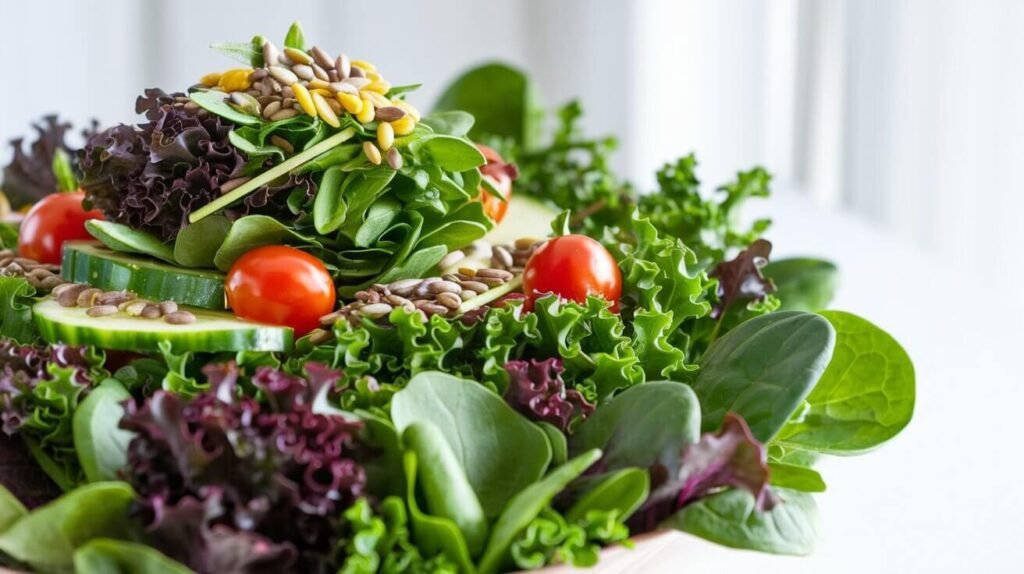
Key Nutrients:
Vitamin A: Needed for healthy eyes and to help the immune system.
Vitamin K : Helps in absorption of calcium maintaining bone health.
Antioxidants (specifically lutein and zeaxanthin): These help to shield the eyes from oxidation that may cause cataracts or macular degeneration.
Health Benefits:
Detoxification: The isothiocyanates made from kale’s glucosinolates have well-documented detox effects and the ability to regulate stuff at a genetic level. This helps explain how it can offer comprehensive support for the body’s own detox system!
Inhibits Cancer Growth: Kale has a high amount of glucosinolates, which converts into bioactive compounds that have been linked to reduce the risk of various cancers; especially colon and bladder cancer.
Blood Clotting: Vitamin K essential for blood clotting to prevent excessive bleeding.
How to Use: Throw kale in your salad, sauté with garlic and olive oil, or add it into green smoothies.
Salmon: The Omega-3 Hero
Salmon is one of the highest sources in omega-3 fatty acids that are necessary for a healthy heart, brain and eyes. While salmon is an excellent source of the omega-3s EPA and DHA, which are essentially never to be found other than in fatty fish (or algal oil for vegans), these forms of omega-3 are also highly bioavailable. Your body can utilize them far more effectively than it could any form from a plant-derived food. Not to mention, salmon is also rich in high-quality protein and provides tons of vitamins and minerals including B vitamins (especially vitamin B12), selenium, and Vitamin D.
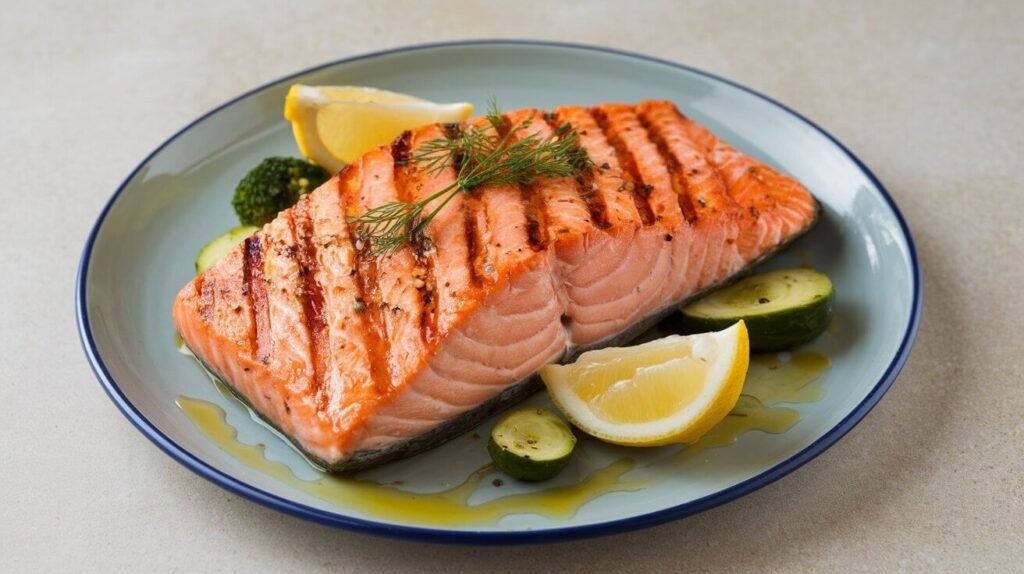
Key Nutrients:
Omega-3 Fatty Acids: Essential for inflammation and brain health.
Vitamin D: Helps maintain bone integrity and overall immune function.
Protein: The building block for muscle growth and repair.
Health Benefits:
Cardiovascular Health: The fats found in salmon can lower triglycerides, decrease inflammation and prevent abnormal heart rhythms, all important for reducing the risk of developing into heart disease.
Brain Health: Omega-3 fatty acids are vital in terms of brain function and decreasing the riskiness to be affected by depression, as well as neurodegenerative diseases such Alzheimer’s Disease.
Skinsty Health & Hair: Can protect skin cell damage, keep the surface of your hair hydrated and reduce premature aging.
How to Eat: Grill or bake salmon with herbs like you would other fish, use canned (boneless and skinless) in salads/on sandwiches.
Chia Seeds: Tiny But Mighty
They may be very tiny, but chia seeds are strong in nutrition. Full of fiber, omega-3 fatty acids, protein and lots of delectable minerals — from calcium to magnesium to phosphorus. Increases in volume due to liquid absorption, fosters the formation of a gel that tells your gut you are full.
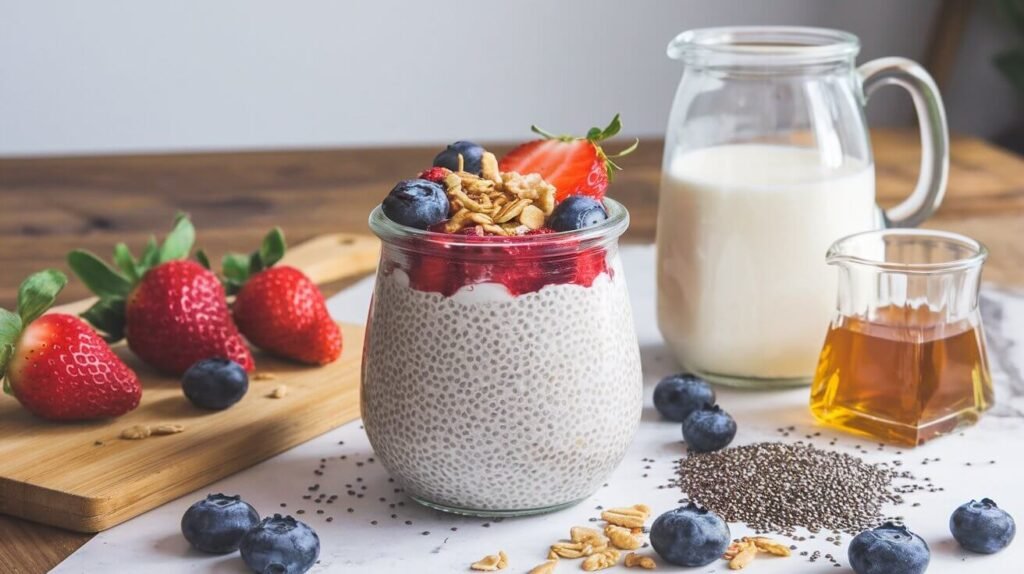
Key Nutrients:
Fiber: It assists in keeping your digestive tract and blood sugar levels functioning normally.
Omega-3 Fatty Acids: improve cardiovascular health, anti-inflammatory.
Calcium and Magnesium: Important for bone health, muscle function.
Health Benefits:
Weight Control: Chia seeds absorb up to 10 times their weight in water, expanding in the stomach and promoting a feeling of fullness that can aid in weight management.
Reduces the risk of stroke : Omega 3 fatty acids present in Chia seeds helps to reduce blood pressure, decrease LDL cholesterol & inflammation and all these are good for the heart.
Bone strength: For the bone density and prevention of osteoporosis chia seeds is one best plant-based calcium source.
How You Can Add This: Mix chia seeds in your smoothies, yogurt or oatmeal or prepare chew pudding by dipping them with white almond milk and a piece of fresh fruit.
Quinoa: The Gluten-Free Protein Powerhouse
The nine essential amino acids (ones your body cannot make) are in quinoa making it a complete protein. The beauty of textured soy protein is that it has adequate amounts of all the essential amino acids, which makes for a circular to higher-protein source. Additionally, it is a good source of fiber and magnesium — both of which can help control blood sugar levels, as well as manganese, an essential cofactor in enzymes that are important for the metabolism of carbohydrates. It’s gluten-free so suitable if you have celiac disease or a non-celiac gluten sensitivity.
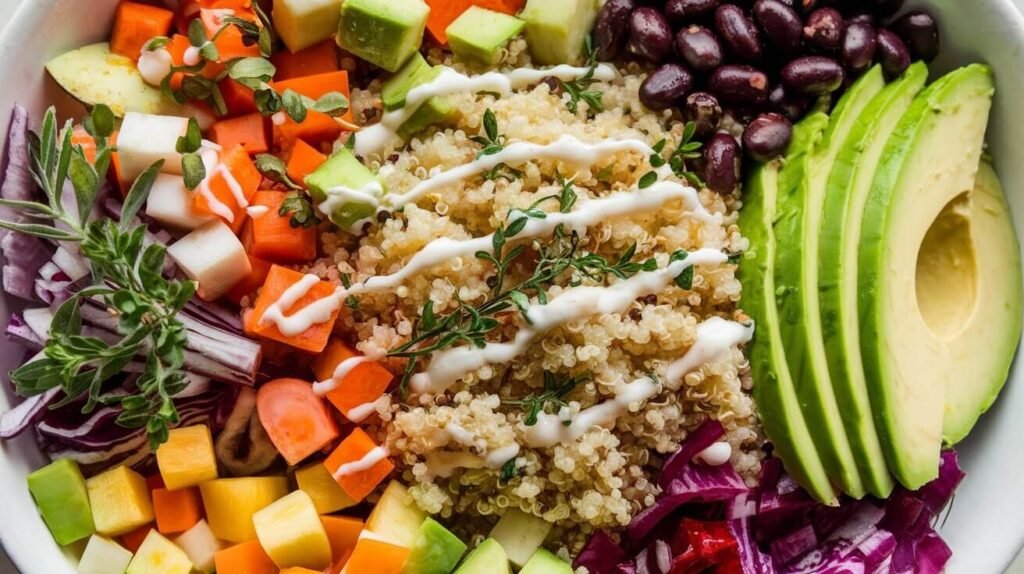
Key Nutrients:
Protein: builds and repairs muscles.
Fiber: Promotes healthy digestion and blood sugar-balancing.
Magnesium: Regulates blood sugar, promotes muscle and nerve function, increases energy.
Health Benefits:
Good For Muscle Recovery: Quinoa contains a good balance of carbohydrate and protein, making it an excellent choice for a post-workout meal to repair muscle tissues and replenish glycogen stores.
Control Blood Sugar: With its high fiber and low glycemic index, quinoa is a good option for maintaining stable blood sugar levels which are critical for managing diabetes and preventing insulin resistance.
Digestion: The fiber content in quinoa supports healthy digestion, as it can prevent constipation and promote the balance of a microbiome in your gut.
How to eat it: Try using quinoa as a base for salads, stir-fries or grain bowls and serving it up on the side with roasted veggies (like brussels sprouts) alongside a lean protein.
The Nutrition Fat Factory: Avocados
One of the top monounsaturated fat foods, which help reduce bad cholesterol (LDL) and raise good cholesterol (HDL) . Avocados are high in fiber and contain more potassium than bananas which makes them a must-have for heart health, skin vitality along with the rest of your metabolic function.
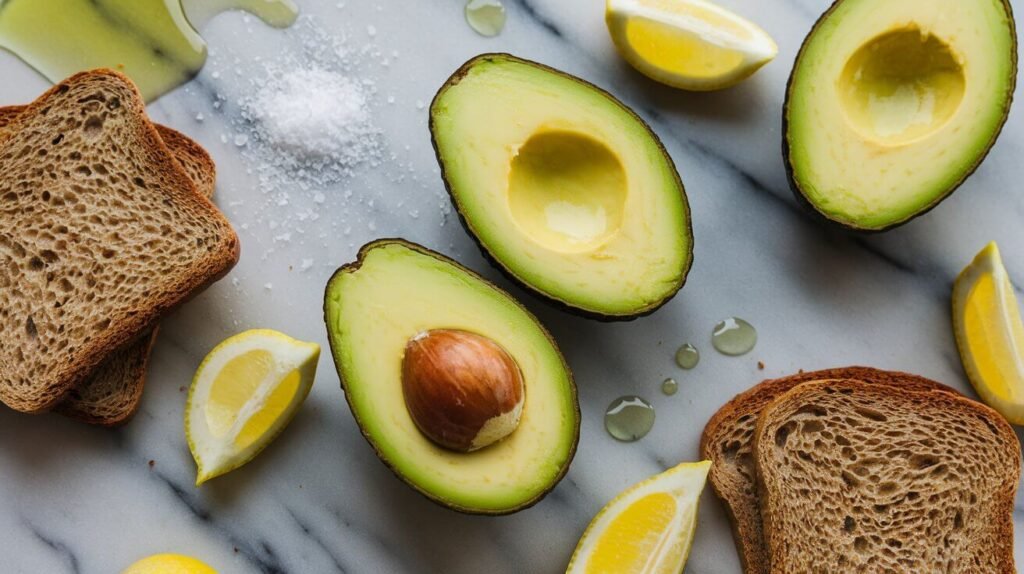
Key Nutrients:
Monounsaturated Fatty Acids: Help the heart and fight inflammation.
Potassium: Helps balance fluid levels and supports cardiovascular health.
Vitamin E: Another antioxidant that helps protect cells from damage caused by free radicals.
Health Benefits:
Heart Healthy: Avocados contain monounsaturated fats which support healthy cholesterol levels and lower the risk of cardiovascular disease, including heart attacks.
Avocados have high levels of vitamin E, critical to maintaining skin elasticity and avoiding wrinkle formation as well as aiding in the generation of healthy hair.
Weight Management: The fat and fiber in avocados support satiety, which can help you feel satisfied without overeating – a key goal for becoming/maintaining fit.
A serving: Add tolerable fresh one to salads, sandwiches or toast, and stir up some healthy guacamole to snag with prominently veggie adherends.
Complex Carb Champ: Sweet Potatoes
They are a powerhouse of essential nutrients and they belong to the root vegetable, sweet potatoes. They are particularly rich in beta-carotene, which is converted into vitamin A in the body to help improve eye health and immune function. Sweet potatoes are also a great source of complex carbs that provide long-lasting energy and won’t raise blood sugar in the way refined carbs do.
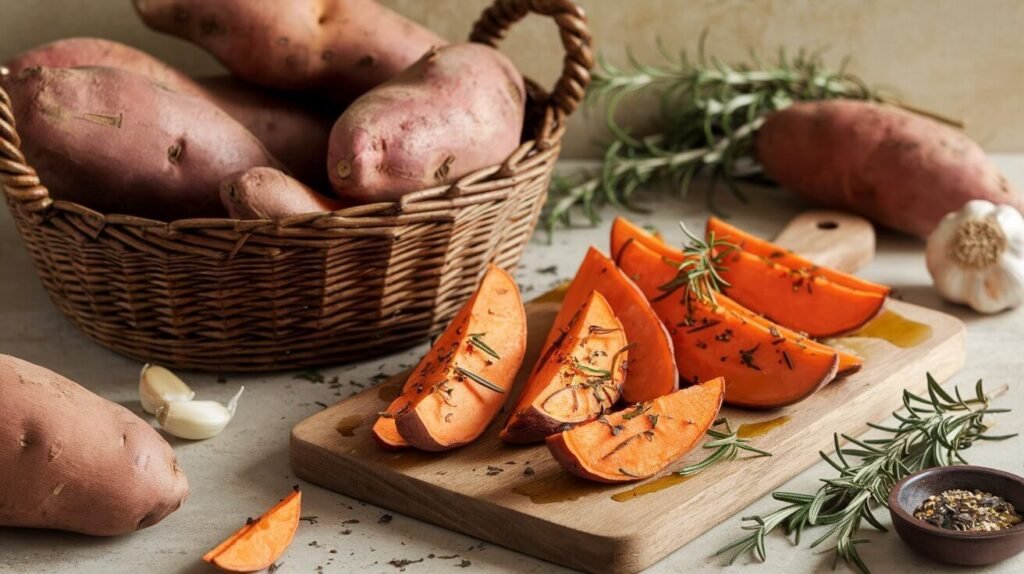
Key Nutrients:
Beta-Carotene: Turns vitamin A, which is significant for immune system function and eye health.
Vitamin C: Plays a role in immune defense and collagen production
Potassium: It helps in fluid regulation and helps deliver muscles to your nerves.
Health Benefits:
High in beta-carotene sweet potatoes protect against macular degeneration as well and help keep your eyesight sharp.
These Are Amazing For Digestive Health: Sweet potatoes contain dietary fiber which supports digestion and regular bowel movements.
Low Glycemic Index: With their natural sweetness, many might assume that sweet potatoes are bad for your blood sugar because of a higher carbohydrate content but the truth is they actually have a low glycemic index making them perfect to add in when it comes to regulating those levels and also preventing insulin spikes.
How to use: Bake with sweet potatoes and olive, crush on top of vegetable bowls for a hearty meal or even prepare it as sides.
Turmeric: The Golden Anti-Inflammatory
Curcumin, a compound with strong anti-inflammatory and antioxidant abilities is found in turmeric — an indian spice commonly used to create curry. Curcumin has also been widely studied for its anti-inflammatory effects, most of which is low-level/chronic inflammation involved in almost all major age-related diseases including heart disease, cancer & various neurodegenerative conditions.
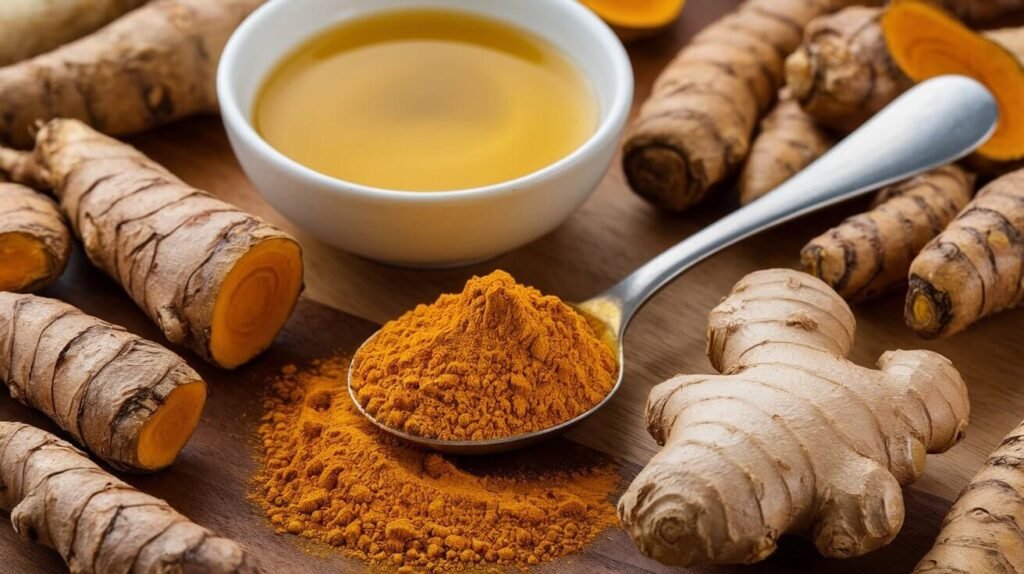
Key Nutrients:
Curcumin: This is the active ingredient in turmeric, which gives it its anti-inflammatory and antioxidant properties.
Manganese : It is essential for bones and connective tissues formation.
Iron: Needed for energy production and to carry oxygen in the blood.
Health Benefits:
Curcumin— and inflammation fighter: Curcumin is one of the most potent natural anti-inflammatory extremists. It can help get proteins that play a role in inflammation, so is used to treat things like arthritis, inflammatory bowel disease and heart problems.
Supports Brain Health: Curcumin has been found to cross the blood-brain barrier which could help prevent or slow neurodegenerative diseases like Alzheimer’s by reducing inflammation and plaque in the brain.
Prevention of cancer: Curcumin has shown anti-cancer effects by preventing the growth of a tumor and expanding its regions.
How to use: Add turmeric in curries, soups or teas for anti-inflammatory benefit you can also take it as a supplement for more specific effects.
Almonds: The Vitamin-E Bomber
Almonds- An excellent source of vegan, healthy fats than any other nut available. Full of fiber and protein as well as magnesium but especially high in vitamin E (one of the top sources). This includes antioxidant protection, immune support plus helps maintain beautiful skin! They also provide important cardiovascular benefits by improving cholesterol levels and reducing oxidative stress.
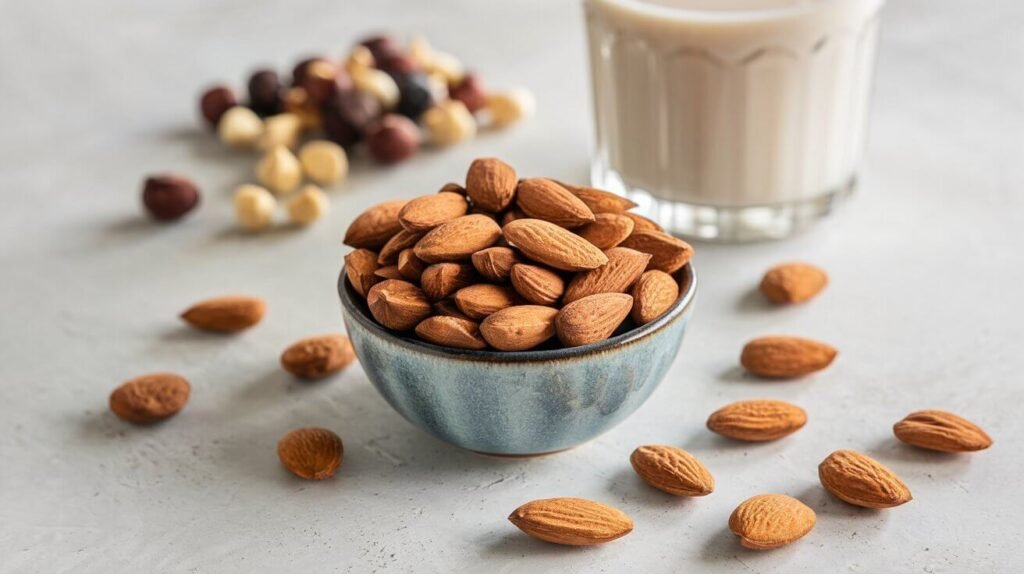
Key Nutrients:
Vitamin E: An antioxidant that protects your cells from damage
Magnesium: a mineral that supports nerve function, muscle health and energy production.
Healthy Fats: Encourages Heart Health and Helps Reduce Inflammation
Health Benefits:
Reduces Heart Disease: Almonds contain monounsaturated fats (good fat) and antioxidants, which improves cholesterol level thereby reducing the risk of heart disease.
Skin Health: Vitamin E is required to protect the skin from UV damage and prevent dryness, it facilitates healing of burns or other skin injuries.
Weight Management: Almonds are a perfect snack and bring several inbuilt benefits such as the feeling of fullness by rich protein fiber reduces overall calorie intake ultimately supporting weight loss.
How to Eat It: Snack on almonds or toss them in a salad, oatmeal, smoothie for texture.
Garlic: Nature’s Antibiotic
Everyone knows that garlic is beneficial to health by boosting the immune system and treating infections. Garlic also has potent antimicrobial, antiviral and anti-inflammatory properties from sulfur compounds like allicin. It also reduces blood pressure and decreases cholesterol level which again is a heart healthy property of the food.
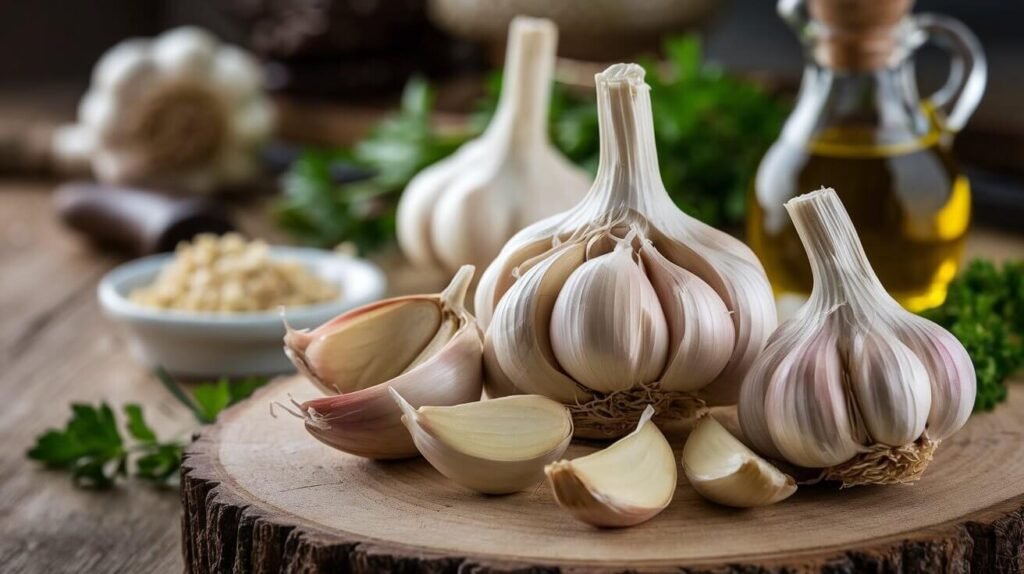
Key Nutrients:
Allicin: Antimicrobial and antiviral
Vitamin C: For immune health and cell protection.
Magnesium: supports bone health and metabolism.
Health Benefits:
And it helps to boost your immune system by triggering the production of white blood cells, which are produced upon confrontation with harmful viruses and bacteria. Daily, it can reduce the severity and frequency of colds and flu.
Soothing for Heart: Since garlic has cholesterol and blood pressure lowering qualities, it is a good food to eat in order to prevent cardiovascular disease.
Antimicrobial: Garlic is a natural antibiotic, antiviral and even, and anti-fungal making it an excellent supplement for immune support especially in flu season.
How to Incorporate: Consume fresh garlic during cooking or obtain an immune boost that is a bit more concentrated by taking garlic supplements.
The Perfect Diet for Ultimate Health
You would be surprised at how simply adding these superfoods to your daily meals can make a big change in our health as the best natural anti aging. These foods are not only good for the heart but also have anti-inflammatory properties, boost brain health and memory, reduce diabetes risk and increase longevity. Even though no single food can supply all the nutrients your body needs, you should eat superfoods as a part of balanced nutrition to optimally promote good health.
Tip: Like with all superfoods, make sure to get them in their most raw state and as part of a balanced diet or they won’t promote these full benefits. Eating these foods along with consistent physical activity, good hydration and sleep habits can take your health transformation to a whole other level.

